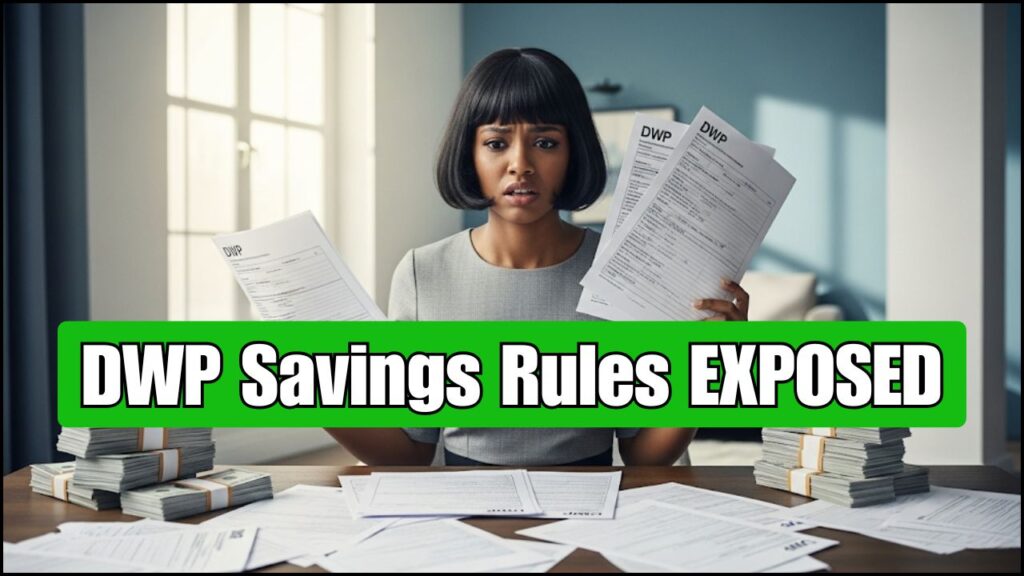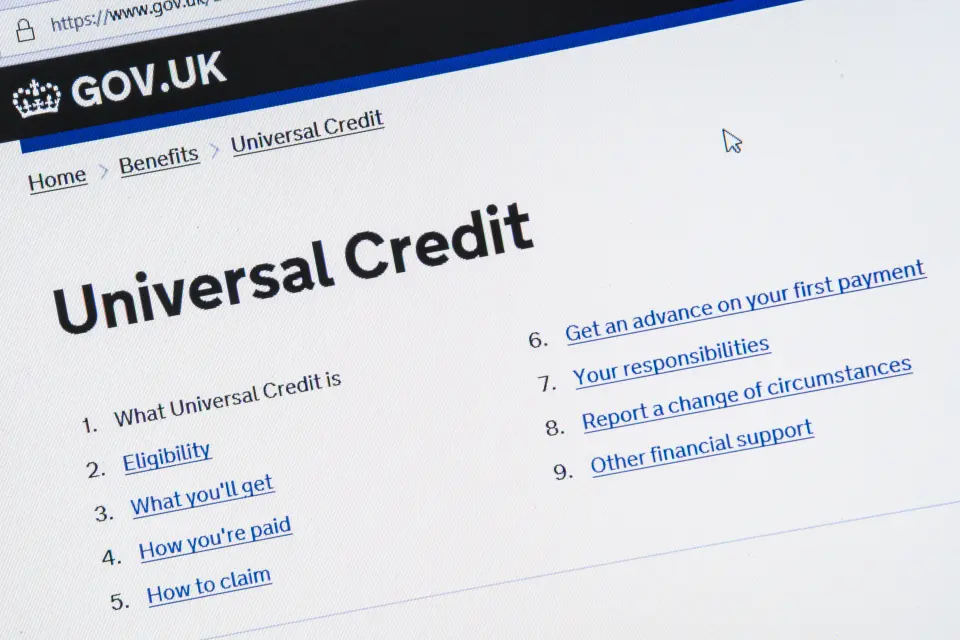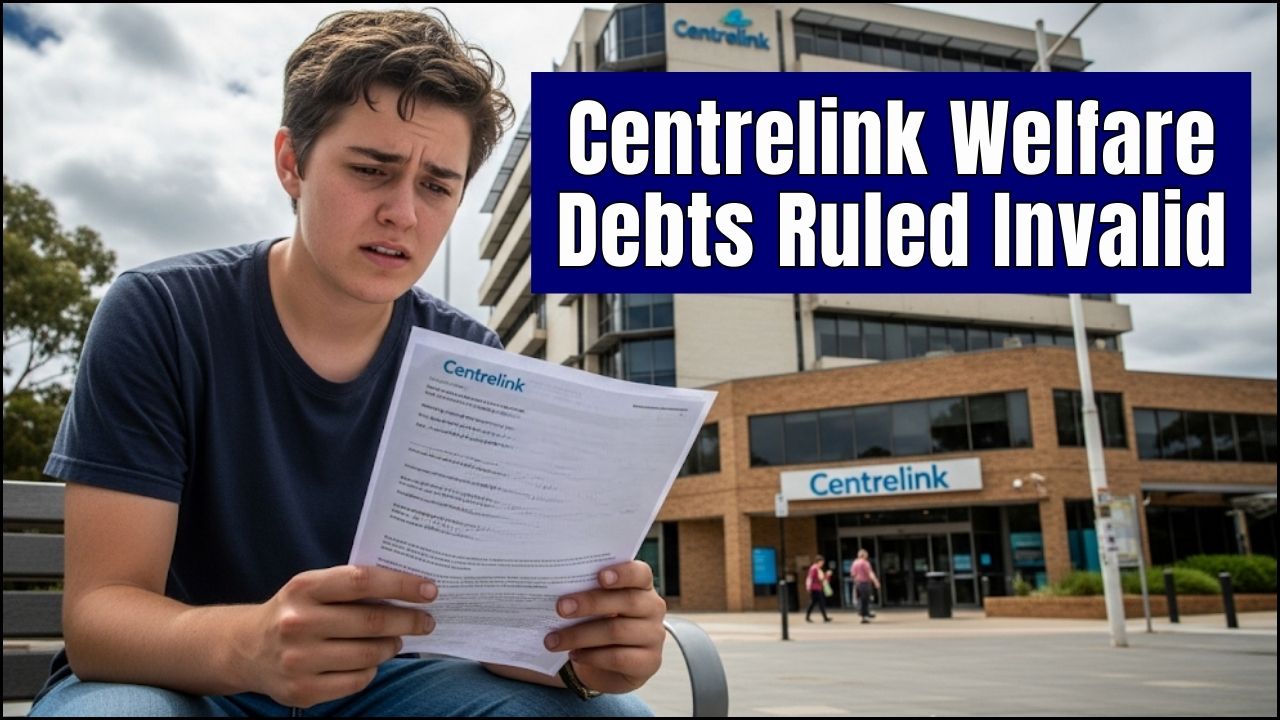When it comes to the DWP savings rules, things can get real tricky, real quick. If you’re stacking cash under your mattress, building an emergency fund, or just got hit with a lump sum like inheritance or redundancy pay, the Department for Work and Pensions (DWP) is gonna want to know. And trust me, what you don’t know can cost you.

Whether you’re collecting Universal Credit, Pension Credit, or another benefit, the amount of capital (money or stuff you own that can be turned into cash) you’ve got set aside can seriously impact your eligibility and payment amount. So let’s break it all the way down—easy, clear, and honest.
DWP Savings Rules EXPOSED
| Benefit Type | Savings Thresholds | Impact on Benefits | Official Guidance |
|---|---|---|---|
| Universal Credit | Up to £6,000: No impact£6,001-£16,000: Reduced>£16,000: No benefit | Tapering: £4.35 reduction for every £250 over £6k | gov.uk Universal Credit |
| Pension Credit | Up to £10,000: No impactAbove £10,000: Reduced | £1/week deduction for every £500 over threshold | gov.uk Pension Credit |
| Capital Counted | Cash, bank savings, ISAs, stocks, bonds, crypto, etc. | Counted in full unless exempt | MoneyHelper |
| Capital Not Counted | Home you live in, personal items, children’s savings | Not considered for benefit calculation | Citizens Advice |
The DWP savings rules might seem like a maze, but once you know the rules, you’re ahead of the game. Keep track of your capital, report any changes, and don’t try to outsmart the system—it always catches up. Whether you’re a single parent, retired elder, or just hustling to get by, this guide helps you hold on to what you’re owed while keeping Uncle Sam off your back.
What Counts as Capital (And What Doesn’t)?
Counted Capital
If it’s cash in the bank, in an ISA, stocks, bonds, crypto, a second property, or even gold bars under your bed—that’s counted. Also included are windfalls like:
- Inheritance
- Redundancy pay
- Insurance payouts
- Compensation
- Business assets (if you’re not self-employed)
Exempt or Not Counted
Some items don’t count as capital:
- Your primary residence
- Personal belongings (like clothes, furniture)
- Child savings (in their own name)
- Life insurance that hasn’t matured
- Funeral plans
- Certain compensation awards (e.g., for wrongful conviction)
How Your Savings Affect Universal Credit (UC)

Breakdown:
- £6,000 or less? You’re good. No deduction.
- Between £6,001 and £16,000? Your benefit drops by £4.35/month for every £250.
- Over £16,000? No Universal Credit for you.
Example:
Let’s say you have £7,500 saved.
- £7,500 – £6,000 = £1,500 excess
- £1,500 / £250 = 6 (round up!)
- 6 x £4.35 = £26.10
So your UC payment gets cut by £26.10/month.
Special Note:
If you’re moving from legacy benefits under managed migration, you might still qualify with over £16k for up to 12 months.
Pension Credit Rules
This one’s for our elders. The Savings Credit part of Pension Credit was scrapped for new claims post-2016. What remains is Guarantee Credit:
- Under £10,000: No reduction.
- Over £10,000: You lose £1/week for every £500 over the limit.
Example:
If you have £12,000:
- £12,000 – £10,000 = £2,000
- £2,000 / £500 = 4
- 4 x £1 = £4/week deduction from Pension Credit.
Real Talk: What NOT To Do
Don’t Try to Hide It
If you give away money or spend it just to qualify, DWP might treat it as if you still have it. That’s called notional capital.
Report Changes ASAP
Get a lump sum? Inheritance? Sell something big? You gotta tell DWP right away. Delay = overpayments = repayment drama.
Extra Insights: What People Miss
Backdated Benefits and Lump Sums
If you receive a backdated benefit payment, that may not count as capital right away. In some cases, lump sums are disregarded for up to 52 weeks if used for specific expenses like paying off debts or major home repairs.
Inflation vs. Thresholds
The savings thresholds have been frozen for years. But inflation has soared. More people are being penalized just for saving a little extra. Some advocacy groups are calling for reforms to raise the £6,000 threshold.
Tips to Stay Compliant
- Use savings to pay down priority debts or invest in essential items.
- Keep detailed records of lump sum usage.
- Seek advice before large transactions or gifting money.
- Use government-backed calculators to model changes.
Savings Limits Across Key Means-Tested Benefits
Understanding the specific savings limits for different benefits is crucial. Here’s a quick comparison of some of the main means-tested benefits and how your savings are assessed:
| Benefit Type | Savings Below £6,000 | Savings Between £6,000 and £16,000 | Savings Above £16,000 |
| Universal Credit | No impact on benefit. | Benefit reduced by £4.35 for every £250 (or part of £250). | Generally ineligible. |
| Housing Benefit | No impact on benefit. | Benefit reduced (rules can vary slightly, but often similar to UC for working-age). | Generally ineligible. |
| Pension Credit | No impact on benefit. | First £10,000 disregarded; every £500 over that counts as £1 of weekly income. | No upper limit if receiving Guarantee Credit. |
| Income-Related ESA | No impact on benefit. | Benefit reduced by £1 for every £250 (or part of £250). | Generally ineligible. |
| Income-Based JSA | No impact on benefit. | Benefit reduced by £1 for every £250 (or part of £250). | Generally ineligible. |
FAQs
Q: Can I spend my savings to stay below the threshold?
A: Only if it’s legit. Paying off debt, home repairs, or buying essential stuff is fine. Dropping 5 grand on a cruise? DWP might not like that.
Q: Do my partner’s savings count?
A: Yes. If you live together, it’s joint capital.
Q: Are children’s savings counted?
A: No, if held in accounts in their name.
Q: Can I still get help if I have over £16k?
A: Generally, no. But transitional protection may apply if you’re migrating from other benefits.
Q: Are Help to Save or Lifetime ISAs included?
A: Yes, these are counted unless specifically excluded. The government bonus itself may be ignored for a short period.
Final Thoughts: Be Smart, Stay Clear
DWP savings rules are no joke. With thresholds frozen for years while living costs rise, more folks are getting penalized for just having an emergency fund. Always check before you act. Use benefit calculators like Turn2Us or EntitledTo.
When in doubt, talk to a trusted benefits advisor. It’s better to ask than get smacked with a bill.












